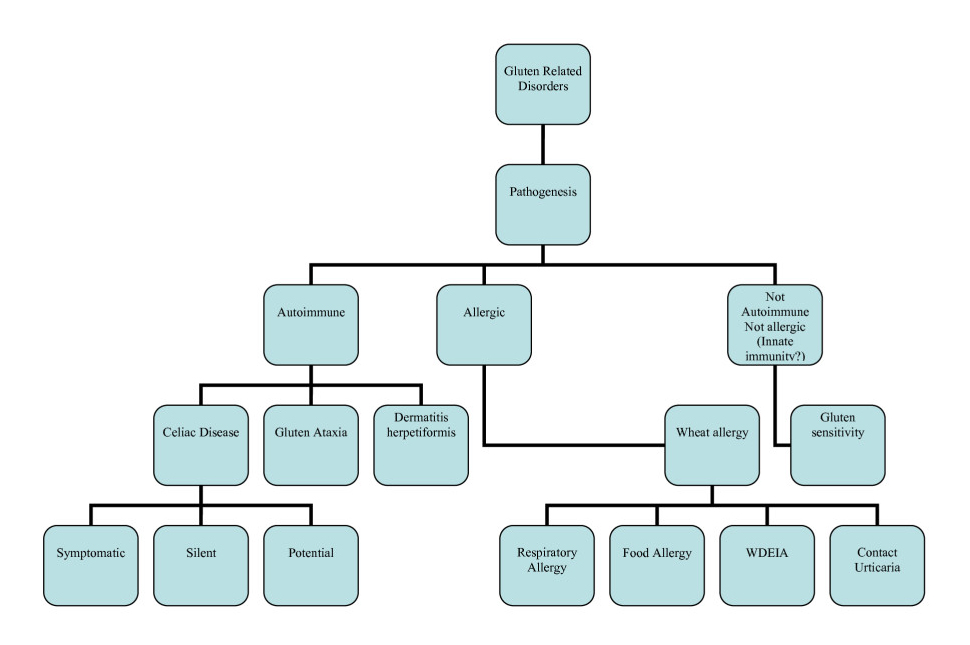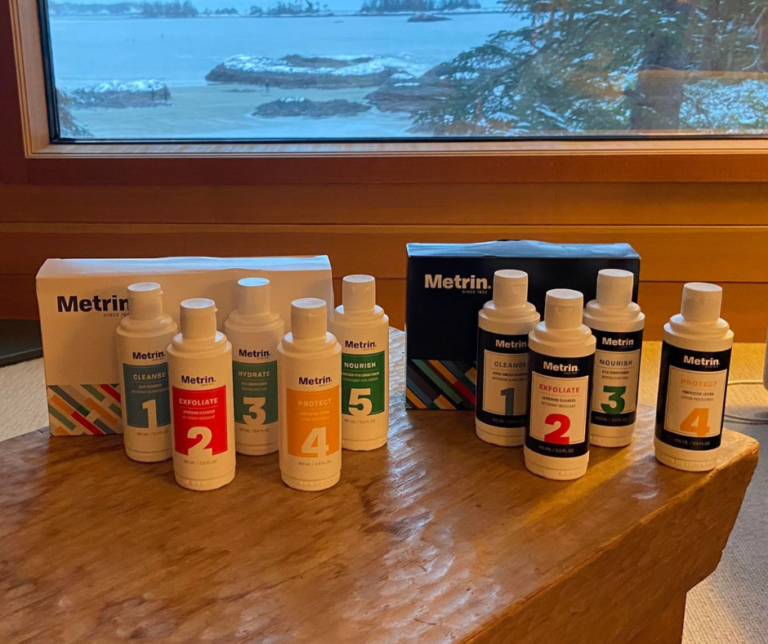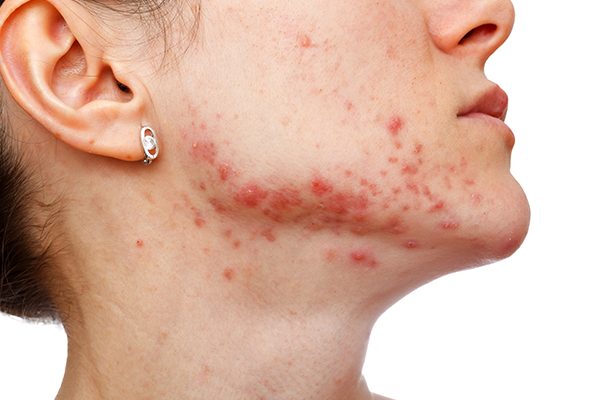Going Against the Grain: Gluten Free Skin Care

Alright, what is gluten?
Gluten is a protein found in wheat, barley, rye and many other derivatives of these grains. There are a few possible explanations for why this naturally occurring dietary protein has become toxic for so many people.
One leading example is the selection of wheat varieties with higher gluten content has been a continuous process during the last 10,000 years, with changes dictated more by technological reasons.i Basically, how we process our food has changed over time – and not everyone’s gastrointestinal and immunological responses are happy with these changes.
Tummy Troubles & Skin Issues
Reactions to gluten are not limited to those suffering from Celiac Disease.ii There is a spectrum of gluten-related conditions that may stem from adaptations in modern wheat cultivation. The main ones include non celiac gluten sensitivity and wheat allergies.
You’ve probably noticed a rise in gluten-free restaurants and gluten free skin care products to accommodate those suffering from gluten-related conditions that often lead to tummy troubles and skin issues.

Non Celiac Gluten Sensitivity
Non Celiac Gluten Sensitivity was first described in the 1980’s and is a combination of Irritable Bowel Syndrome(IBS)-like symptoms including abdominal pain, bloating, bowel habit abnormalities, “foggy mind”, headache, fatigue, joint, muscle pain, eczema, skin rash, depression and anemia.iii
Wheat Allergy
| Gluten Freedom
Going gluten-free can save you a lot of discomfort, without sacrificing delicious foods or effective products. |
A Wheat Allergy is similar to other food or environmental allergies. Although very rare, a wheat allergy can show cross reactions between different seed and pollen proteins may cause adverse reactions like anaphylaxis, rashes, respiratory issues and many others.iv
Like most environmental allergies, symptoms can be triggered simply through pollen in the air, inhalation or contact with the skin. So, if you have a wheat allergy, gluten free skin care products are something worth looking into!
Check the Label
Many manufacturers are starting to recognize the need to specify their ingredients and where/what they’re being derived from. Did you know, tocopherol/tocopheryl acetate – otherwise known as Vitamin E – can be derived from wheat?
Various gluten-related proteins can be found in medications, toothpaste, meat, cheese, tea, makeup, cleaning supplies, air fresheners, paint, stamps, baby powder and even…sorry ladies…tampons.

According to Celiac Canada, labels for all products sold in Canada must clearly identify the presence of gluten if it is at a level greater than 10 ppm (parts per million), which means anything lower than that is not identified.
This can be a serious issue for people with celiac disease, and although they represent a small portion of the population, it’s still important to offer gluten free skin care products for them and anyone who may be non-celiac gluten-sensitive.
Up until 2013 in the United States, anyone could use the claim “gluten-free” with no repercussion.
The Food Allergen Labeling and Consumer Protection Act and the FDA eventually ruled food producers can claim gluten-free in its labeling if it is below 20ppm. Again, companies can SAY “gluten-free” but still may have small traces in their products. Typically there will be a warning sign “manufactured in a facility where such and such is also made”, but sometimes you won’t know until after the fact.
This can become problematic with a wheat allergy. If the label is wrong, and you use a “gluten-free” skincare product – chances are you’ll break out into a rash.

Gluten Free Skin Care
Gluten free skin care products can be challenging to identify when labelling and ingredient lists are not always clear. If you find yourself breaking into rashes or welts after using your regular toiletries, it could be from something called STEARYLDIMONIUMHYDROXYPROPYL – a wheat derivative sometimes found in soaps, lotions, shampoos and conditioners that often triggers eczema!
Are we a gluten free skin care company? 100%. Check out our ingredient list.
Even the Pros Don’t Know!
Health care professionals are perplexed; the number of people living a gluten-free lifestyle is much higher than the number of celiac disease patients and people with wheat allergies.
It’s still unclear if having a non celiac gluten sensitivity is permanent or transitionary, if it’s the same for everybody and if individuals are subject to adapt. One of the primary issues with gluten-sensitivity is that there are no biomarkers to diagnose it. Recently, studies have been conducted based on a double blind, placebo controlled design to provide more evidence-based data on the prevalence of gluten sensitivity and the specific clinical conditions it may have.
Now What?
If you suffer from tummy troubles or problem skin and you want to know if you have a gluten sensitivity, once celiac disease is ruled out, a gluten-free diet and using gluten free skin care products is the only way to find out.
It can be difficult to adjust at first, but METRIN’s got you covered! There’s also plenty of delicious food alternatives! Gluten-free restaurants are quite becoming more and more common, particularly on the west coast, and cooking options are much more exciting than you’d think!
i Molberg O, Uhlen AK, Jemsen T, Flaete NS, Fleckenstein B, Arentz-Hansen H, Raki M, Lundin KE, Sollid LM: Mapping of gluten T-cell epitopes in the bread wheat ancestors: implications for celiac disease. Gastroenterology. 2005, 128: 393-401.
ii Current approaches to diagnosis and treatment of celiac disease: an evolving spectrum. Fasano A, Catassi C Gastroenterology. 2001 Feb; 120(3):636-51.
iii Serological tests in gluten sensitivity (nonceliac gluten intolerance).Volta U, Tovoli F, Cicola R, Parisi C, Fabbri A, Piscaglia M, Fiorini E, Caio G J Clin Gastroenterol. 2012 Sep; 46(8):680-5.
iv Cooper, B.T.; Holmes, G.K.; Ferguson, R.; Thompson, R.A.; Allan, R.N.; Cooke, W.T. Gluten-sensitive diarrhea without evidence of celiac disease. Gastroenterology 1980, 79, 801–806.







